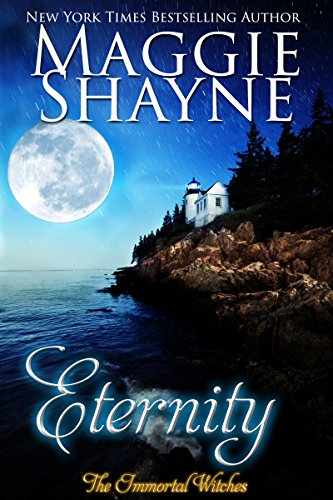Last call for KND free Romance excerpt:
4.5 stars – 287 Reviews
Text-to-Speech and Lending: Enabled
Here’s the set-up:
WINNER: RT Book Reviews: Reviewers Choice Award
WINNER: Reviewer’s Listserv: Best Paranormal Romance Award
WINNER: New Jersey Romance Writers: Golden Leaf Award
One of BN.com’s “Top 12 Reads of the Year”
300 years ago, Raven St. James was hanged for witchcraft. But she revives among the dead to find herself alive. She is an Immortal High Witch, one of the light. A note from her mother warns that there are others, those of the Dark, who preserve their own lives by taking the hearts of those like her.Duncan Wallace’s forbidden love for the secretive lass costs him his life.300 years later, he loves her again, tormented by hazy memories of a past that can’t be real. She tells him of another lifetime, claims to be immortal. Though he knows she’s deluded, he can’t stay away. And the Dark Witch after her heart is far closer than either of them know.
* * *

* * *
And here, for your reading pleasure, is our free romance excerpt:
Chapter 1
I always knew I was a witch.
The definition of the word has since broadened somewhat, and rightly so, I imagine. Today anyone with the determination to learn and practice the Craft of the Wise can call herself—and deservedly—a witch. But in my time there were no books written to guide a seeker, save the books of the witches themselves, but the grimoires were kept secret. Back then one was only a witch if one was born to, or adopted by, another witch. And even then the young one wasn’t told all of the secrets. Some of them I didn’t learn until much later.
My mother was a wise woman, a witch, and from the time I was very young I was taught the ways of drawing on the power of the sun and the moon and the stars and of nature itself. Above all else, I was taught the importance of keeping all that I learned secret. For the penalty meted out to practitioners of the Craft in those days was harsh. Mother never told me just how harsh. I learned that when I was twenty and one, in a lesson so cruel its memory remains burned in my mind, though three full centuries have passed. And yet it was because of that cruelty that I first set eyes upon Duncan Wallace.
The key to my mother’s ruin was her kindness. My father had died only a fortnight before, of a plague her simple folk magic could not fight. Many lives were lost in our small English village that brutal winter of 1689, and perhaps my mother simply could not bear to see one more death after so much grief.
At any rate, it was Matilda, the sister of my dead father, who came pounding on our door that dark wintry night. Looking startled at Aunt Matilda’s state—wild hair and wilder eyes and not so much as a cloak about her shoulders—Mother drew her inside and bade her take the rocking chair beside the hearth to warm herself. I offered tea to calm her. But Aunt Matilda seemed crazed and refused to sit down. Instead, she paced in agitated strides, her skirts swishing about her legs, her thin slippers leaving damp footprints on our wood floor.
“No time to sit an’ sip tea,” she told us. “Not now. ‘Tis my youngest, my little Johnny, named for my own dear brother who has gone to his reward. My Johnny has taken ill!” She whirled and grabbed my mother, gripping the front of her dress in white-knuckled fists. “I know you can help him. I know, I tell you! An’ if you refuse me now, Lily St. James, I vow–”
“Matilda, calm yourself!” My mother’s firm voice quieted the woman, though only for a moment, I feared. “I would never refuse to help Johnny in any way I can. You know that.”
“I don’t know it!” my aunt shrieked. “Not when you let your own husband die of the same ailment! Pray, Lily, why didn’t you save him? Why didn’t you save my brother?’’
My mother’s head lowered, and I saw the pain flare anew in her eyes—a pain that sometimes dulled but never died away.
“I tried everything I knew to help Jonathon. But I couldn’t save him,” she whispered.
“Perhaps because you brought the illness on him from the start.”
“Aunt Matilda!” I stepped between the two, forgetting to respect my elders and tugging my aunt’s arm until she faced me, rather than my mother. “You know better. My parents shared a love such as few people ever know, and I’ll not stand by and hear you sully its memory.”
“Raven, don’t,” Mother began.
But I rushed on. “No one can bring on such a plague as this, and well you know it!”
“No one but a witch, you mean, don’t you, Raven? Raven. She even named you for some dark carrion bird. Are you practicing the black arts as well, girl?” Aunt Matilda gripped my shoulders, shook me. “Are you? Are you?”
I could only blink in shock and stagger backward, pulling free of her chilled hands. My aunt knew. But how? How could she know the secret that had been only between my mother and me? Even my father had been unaware….
“What makes you say such a thing?” my mother asked gently. “How can you accuse your own sister?”
“Sister-in-law and not by blood,” Matilda reminded my mother. “And I know. I’ve always been suspicious of you and your Pagan ways, Lily. From the time you helped me birth my firstborn and somehow took away the pain. And later, when you nursed me through the influenza that should have killed me. You with your herbs and brews.” She waved a hand at the drying herbs that hung upside down in bunches from our walls, and at the jars filled with philters and powders, lining the roughly hewn wooden shelves. “No physician could ease my suffering the way you did.” She said it unkindly, made it an accusation.
Slowly my mother nodded, her serene expression never changing. “Herbs and plants are given by God, Matilda. Knowing how to use His gifts can surely be no sin.”
“I saw you last full moon.”
The words lay there, dropped like blows, as we stared at one another, my mother and I, both remembering our ritual beneath the full moon, when we chanted sacred words ‘round a balefire at midnight.
“I know you have…powers. And I don’t care if they’re sinful or not. Not now. I need you to help Johnny. If you didn’t conjure this plague, then prove it. Cure him, Lily. If you refuse….” Her eyes narrowed, but she didn’t finish.
“If I refuse, you’ll do what, dear sister? Bear witness against me to the magistrate? See me tried for witchery?”
Matilda didn’t answer. She didn’t need to. I saw her answer in her eyes, and my mother saw it as well.
“You’ve no need of such threats,” Mother told her. “All you had to do was ask for my help. I’ll try my best for your son, just as I did for Jonathon. But witchery or no, I may not be strong enough to help him.”
“If he dies, I vow, I’ll see you hang!” Aunt Matilda lurched toward the plank door, tugging it open on its rawhide hinges. “Gather what you need and come at once. I must make haste back to his bedside.”
She left us in a swirl of snow, not bothering to close the door. I went and shut out the weather, then stood for a long moment, my hand on the door. I had a terrible premonition that the events of the past few moments would somehow change our lives forever. I didn’t know how, or why, but I felt it to my bones. Drawing a deep breath, I turned to face my mother. I knelt before her, taking her hands in mine, staring up into eyes as black as my own. “Don’t go to him,” I begged her. “You cannot help him any more than you could help Father. And when he passes, she’ll blame you.”
“He is my own nephew,” she whispered. She tugged her hands away, got to her feet, and began to make ready, taking sprigs of herbs from the dried bunches hanging on the wall, pouring a bit of this powder and a bit of that into her special cauldron. The one with the hand-painted red rose adorning its squat belly. She added steamy water from the larger cast-iron pot that hung in the fireplace to the brew.
“We should leave this village,” I pleaded as I worked at her side, measuring, stirring, holding my hands above each concoction to push magical energy and healing light into it. “We should leave tonight, Mother. Our secret is known, and you’ve told me how dangerous that can be.”
“I can’t break my vows,” she said. “You know that. When someone needs help, asks me for help, I am bound by oath and by blood to try. And try I will.” She looked into my eyes. “You should pack a bag and go to London. Take the horse. Leave tonight. I’ll send for you when—”
“I won’t leave you to face this alone,” I whispered, and I flung myself into her arms, stroking her raven hair, so like my own, though hers was knotted up in back while mine hung loose to my waist. “Don’t ask me to, Mother.”
Her mouth curved in the first smile I’d seen cross her lips since my father’s death. “So strong,” she said softly. “And always, so very stubborn. All right, then. Come, let us hasten to Johnny.”
We quickly packed our potions and some crystals and candles into a bag, pulled our worn homespun cloaks over our heads and shoulders, and stepped out into the brutal winter’s night.
But my cousin was dead before we even arrived at my aunt’s house. And we were greeted by a wild-eyed woman who’d once claimed us as kin, and the group of citizens she’d roused from slumber, all bearing torches and shouting, “Arrest them! Arrest the witches!”
Cruel hands gripped my arms, even as I turned to flee. Accusations rang out in the night, and people stood round watching as my mother and I were surrounded, and then dragged over the frozen mud of the rutted streets. I cried out to my neighbors, begging for help, but none was forthcoming. And my heart turned cold with fear. As cold as the wind-driven snow that wet my face.
‘Twas a long walk, the longest walk of my life. The poor shacks of the village fell away behind us as we were pulled and pushed along, and we emerged onto the cobbled streets that ran between the fine homes of the wealthy in the neighboring town. At last we stood before the house of the magistrate himself, trembling in the icy wind while our accusers pounded upon his door.
The man emerged in his nightclothes after a time, looking rumpled and irritated. “What’s all this?” he demanded, white whiskers twitching.
Two witches!” shouted the man who gripped my mother’s arms tightly. The ones who brought this plague on us all, Honor.”
The old man’s eyes widened, then narrowed again as he perused us. Beyond him I could see the glow of a fire in a large hearth, and feel its heat on my face. I longed to go warm my hands by that fire. My fingers were already numb from the cold.
“What evidence have you against them?” the magistrate asked.
The word of this one’s own sister,” said another, pointing at my mother.
“Matilda is not my sister,” my mother said, her voice ever calm, despite the madness around her. I would never forget her face, beautiful and serene. Her eyes, so brave, no hint of fear in them. “She is the sister of my husband.”
“Your husband who died of the plague!” the man cried out. “And now your nephew is taken as well.”
“Many have been lost to the plague, sir. Surely you wouldn’t accuse every bereaved family of witchery?”
The man glared at my mother. “Matilda St. James bears witness, Honor. She’s seen them practicing their dark rites with her own eyes.”
“‘Tis a lie!” I shouted. “My aunt is maddened with grief! She knows not what she says!”
“Silence.” The magistrate’s command sent shivers down my spine. He stepped forward, glancing down at the woven sack my mother still clutched in her hands. “What have you there, woman?”
Mother lifted her chin, meeting his gaze. I could see the thoughts moving behind his eyes, the way he looked at us, judging us, though we were strangers to him.
“‘Tis only some herbs,” she said softly, “brewed in a tea.”
“She lies,” the man said. “Matilda St. James said this woman was bringing a potion to cure her young son. But she feared the witch would deliberately wait until it was too late to help the lad, and her fear proved true. A witch’s brew lies in that sack, Honor. Nothing less, I vow.”
“‘Tis no potion nor brew,” my mother told him. “‘Tis simply some medicinal tea, I tell you.”
“Are you a physician, wench?” the magistrate demanded.
“You know that I am not.”
“Give me the sack.”
The hands holding my mother’s arms eased their grip, and she gave her sack over. The magistrate opened it, pawing its contents, and I shuddered recalling the stones we’d put inside. Glittering amethyst and deep blue lapis, for healing. And the candles, made by our own hands and carved with magical symbols to aid in Johnny’s recovery. We would have set them around his bed, where they would have burned all night to protect him from the ravages of the plague.
The magistrate saw all of this, and when he looked up again, his eyes had gone cold. So cold I felt even more chilled despite the warmth from the fire at his back. “Put them in the stocks. We try them on the morrow. Perhaps a night in the square will convince them to confess and save us the time.” He withdrew, leaving the door wide, and reappeared a moment later with a large key, which he handed over to one of the men. “See to it.”
“No!” I cried. “You mustn’t do this! We’ve done nothing wrong. Magistrate, please, I beg of you—”
His door closed on my pleas, and again I was pulled and dragged as I fought my captors. But my struggles were to no avail. And soon I found myself being forced to bend forward, my wrists and my neck pressed awkwardly into the stock’s evil embrace. The heavy, wooden top piece was lowered as my own neighbors held me fast, and I heard the chain and the lock snapping tight.
I could not move. Could not see my mother, but I knew she was nearby, for I heard her voice, strained now, but steady. “Tell the magistrate he shall have my confession,” she said. “But only if he will let my daughter go free. She knows nothing of this matter. Nothing at all. You must tell him.”
The man to whom she spoke only grunted in reply. And then the villagers left us. In the town square, bent and held fast, we waited in silence for the dawn. The freezing wind cut like a razor, and the wet snow continued to slash at us. I shivered and began to cry, my face stinging with cold, my hands numb with it, my feet throbbing and swelling.
And then I heard my mother’s gentle voice, chanting softly, “Sacred North wind, do us no harm. Ancient South wind, come, keep us warm.” Over and over she repeated the words, and I forced my teeth to stop chattering and joined with her, closing my eyes and calling to the winds for aid. My mother’s folk magic could not make iron chains melt away. But she could invoke the elements to do our bidding.
Within minutes the harsh wind gentled, and the snow stopped falling. A warmer breeze came to replace the bitter cold, and my shivering eased. I was still far from comfortable, bent this way, unable to relieve the ache in my back. But I knew my mother must be suffering far more than I, for her body was older than mine. Yet she did not complain. I took strength from that, and vowed to keep my discomfort to myself.
“Hard times await us, my daughter,” she told me. “But whatever happens tomorrow, Raven, you must remember what I tell you now. Promise me you will.”
“I promise,” I whispered. “But, Mother, you mustn’t confess anything to them. Not even to save me. I couldn’t live if you were to die.” The thought terrified me, and I pulled my hands against the rough wood that held them prisoner, though I could not hope to work them free. She was all I had in this world. All I had.
“Perhaps this is my destiny,” she said softly. “But ‘tis not yours.”
“How can you know that?”
“I know,” she whispered. “I’ve known from the day you were born, child. By the birthmark you bear upon your right hip. The crescent.” Tears burned my eyes. But my mother went on. “You’re a far more powerful witch than I have ever been, Raven.”
“No. ‘Tis not true. I can barely cast a decent circle.”
She laughed then, softly, and the sound of it touched my heart. That she could laugh at a time like this only made me love and respect her more than I already did, though I’d never have thought it possible.
“I speak not of the form of ritual, but the force, Raven. The power is strong in you. And you will need that strength. When this is over, child, you must leave here. Go to the New World. My sister, Eleanor, is there, in a township called Sanctuary, in the colony of Massachusetts. She is not a witch, and knows nothing of our ways. She was born of my father’s faithlessness and raised by her own mother and not in our household. But she is kind. She will not turn you away.”
“Perhaps not,” I said. “But I will not leave you behind.”
“I fear ‘tis I who will leave you behind, my darling. ‘Tis the night of the dark moon, when our powers ebb low. But even were our lady of the moon shining her full light down upon us, I doubt I could save myself. Do not cry for me, Raven. Dying is part of living, a birth into a new life. You know this.”
“Oh, Mother, stop saying such things!” I cried loudly, sobbing and choking on my tears.
When Mother spoke again, I could hear tears in her voice as well. “Raven, listen to me. You must listen.”
I tried to quiet myself, to do as she wished, but I vowed she would not die tomorrow. Somehow I would save her.
“When ‘tis over,” she told me, “you must return to our cottage in the village. But do so by night, and be very careful. You mustn’t be seen. Do not wait too long, child, lest they burn the house in their vengeance or award it to Matilda’s family in return for her testimony against us. You must go back in secret. Gather only what you will need for your journey. Then go to the hearth. There is a loose stone there. Take what you find hidden beyond that stone.”
“But, Mother–”
“And take the horse, if she is still there. You may sell her in some other village. But take care. Should you meet anyone, do not tell them your true name. And as soon as you can, book passage on a ship to the New World. Now promise me you will do these things.”
“I’ll not let them kill you, Mother.”
“There is nothing you can do to prevent it, child. I’ll have your promise, though, and I will die in peace because of it. Promise me, Raven.”
Sniffling, I muttered, “I promise.”
“Good.” She sighed, so deeply it seemed as if some great burden had been lifted from her shoulders. “Good,” she whispered once more, and then she rested. Slept, perhaps. I could not be sure. I cried in silence from then on, not wishing to trouble my Mother with my tears. But I think she knew.
When dawn came, it brought with it the magistrate, and beside him a woman, looking distraught with red-rimmed eyes. Behind them walked a man who wore the robes of a priest. He had an aged face, thin and harsh, with a hooked nose that made me think of a hawk, or some other hungering bird of prey. He was pale, as if he were ill, or weak. And then they came closer, and I could see only their feet, for I could not tip my head back enough to see more.
“Lily St. James,” the Magistrate said, “you and your daughter are charged with the crime of witchcraft. Will you confess to your crimes?”
My mother’s voice was weaker now, and I could hear the pain in it. “I will confess only if you release my daughter. She is guilty of nothing.”
“No,” the woman said in a shrill voice. “You must execute them now, Hiram. Both of them!”
“But the law—” he began.
“The law! What care do you have for the law when our own child has become ill overnight? What more proof do you need?”
At her words my heart fell. She blamed us for her child’s illness, just as my aunt had done. No one could save us now.
I heard footsteps then, and sensed the magistrate had gone closer to my mother. Leaning over her, he said, “Lift this curse, woman. Lift it now, I beg of you.”
“I have brought no curse upon you, nor your family, sir,” my mother told him. “Were it in my power to help your child, I would gladly do so. As I would have for my own husband and for my nephew. But I cannot.”
“Execute them!” his wife shouted. “Michael was fine until you arrested these two! They brought this curse on him, made him ill out of pure vengeance, I tell you, and if they live long enough to kill him, they will! Execute them, husband. ‘Tis the only way to save our son!”
The priest stepped forward then, his black robes hanging heavily about his feet and dragging through the wet snow. His steps were slow, as if they cost him a great effort. He went first to my mother, saying nothing, and I could not see what he did. But he came seconds later to me and closed his hand briefly around mine.
A surge of something, a crackling, shocking sensation jolted my hand and sizzled into my forearm, startling me so that I cried out.
“Do not harm my daughter!” my mother shouted.
The priest took his hand away, and the odd sensation vanished with his touch, leaving me shaken and confused. What had it been?
“I fear you are right,” the priest said to the magistrate and his wife. “They must die, or your son surely will. And I fear there is no time for a trial. But God will forgive you that.”
Pacing away, his back to us, the magistrate muttered, “Then I have little choice.” And the three of them left us alone again. But only for a few brief moments.
“Mother,” I whispered. “I’m so afraid.”
“You’ve nothing to fear from them, Raven.”
But I did fear. I’d never felt such fear grip me as I felt then, for within moments the priest had returned, and he brought several others with him. Large, strong men. People filled the streets as my mother and I were taken from the stocks. The people shouted and called us murderers and more. They threw things at us. Refuse and rotten food, even as the men bound our hands behind our backs and tossed us onto a rickety wagon, pulled by a single horse. I crawled close to my mother, where she sat straight and proud in that wagon, and I leaned against her, my head on her shoulder, my arms straining at their bonds, but unable to embrace her.
“Be strong,” she told me. “Be brave, Raven. Don’t let them see you tremble in fear before them.”
“I am trying,” I whispered.
The wagon drew to a stop, and the ride had been all too short. I looked up to see a gallows, one used so often it looked to be a permanent fixture here. I was dragged from the wagon, and my mother behind me. But she didn’t fight as I did. She got to her feet and held her head high, and no one needed to force her up the wood steps to the platform, while I kicked and bit and thrashed against the hands of my captors.
She paused on those steps and looked back at me, caught my eyes, and sent a silent message. Dignity. She mouthed the word. And I stopped fighting. I tried to emulate her courage, her dignity, as I was marched up the steps to stand beside her, beneath a dangling noose. Someone lowered the rough rope around my neck and pulled it tight, and I struggled to be brave and strong, as she’d so often told me I was. But I knew I was trembling visibly, despite the warmth of the morning sun on my back, and I could not stop my tears.
That priest whose touch had so jolted me stood on the platform as well, old and stern-faced, his eyes all but gleaming beneath their film of ill health as he stared at me…as if in anticipation. Beside him stood another man who also wore the robes of clergy. This one was very young, my age, or perhaps a few years my elder. In his eyes there was no eagerness, no joy. Only horror, pure and undisguised. They were brown, his eyes, and they met mine and held them. I stared back at him, and he didn’t look away, but held my gaze, searching my eyes while his own registered surprise, confusion. I felt something indescribable pass between us. Something that had no place here, amid this violence and hatred. It was as if we touched, but did so without touching. A feeling of warmth flowed between him and me, one so real it was almost palpable. And I knew he felt it, too, by the slight widening of his eyes.
Then his gaze broke away as he turned to the older man and said, “Nathanial, surely ‘tis no way to serve the Lord.”
The kiss of Scotland whispered through his voice.
“You are young, Brother Duncan,” the older man said. “And this no doubt seems harsh to you.”
“What it seems like to me, Father Dearborne, is murder.”
“‘Thou shalt not suffer a witch to live,’” the priest quoted.
“‘Thou shalt not kill,”’ the young Scot—Duncan—replied. And he looked at me again. They’ve nay been tried.’’
“They were tried in the square by the magistrate himself.”
“It canna be legal.”
“His Honor’s own child is ill with the plague. Would you have us wait for the child to die?”
The young man’s gaze roamed my face, though he spoke to the old one. I felt the touch of those eyes as surely as if he caressed me with his gentle hands, instead of just his gaze.
“I would have us show mercy,” he said softly. “We’ve no proof these women have brought the plague.”
“And no proof they haven’t. Why take the risk? They are only witches.”
The beautiful man looked at the older one sharply. They are human creatures just as we are, Nathanial.” And he shook his head sadly. “What are their names?”
Their names are unfit for a man of the cloth to utter. If you so pity them, Duncan, ease your conscience by praying for their souls. For what good it might do.”
“‘Tis wrong,” Duncan declared urgently. “I’m sorry, Father, but I canna be party to this.”
“Then leave, Duncan Wallace!” The priest thrust out a gnarled finger, pointing to the steps.
Duncan hurried toward them, but he paused as he passed close to me. Then turned to face me, as if drawn by some unseen force. His hand rose, hesitated, then touched my hair, smoothing it away from my forehead. His thumb rubbed softly o’er my cheek, absorbing the moisture there. “Could I help you, mistress, believe me I would.”
“Should you try they would only kill you, as well.” My voice trembled as I spoke. “I beg you…Duncan….” His eyes shot to mine when I spoke his name, and I think he caught his breath. “Do not surrender your life in vain.”
He looked at me so intently it was as if he searched my very soul, and I thought I glimpsed a shimmer of tears in his eyes.
“I willna forget you,” he whispered, then shook his head, blinked, and continued, “In my prayers.”
“If there be memory in death, Duncan Wallace,” I said, speaking plainly, even boldly, for what had I to lose now? “I shall remember you always.”
He drew his fingertips across my cheek, and suddenly leaned close and pressed his lips to my forehead. Then he moved on, his black robes rustling as he hurried down the steps.
“Do you wish to confess your sins and beg the Lord’s forgiveness?” the old priest asked my mother.
I saw her lift her chin. “‘Tis you who ought to be begging your God’s forgiveness, sir. Not I.”
The priest glared at her, then turned to me. “And you?”
“I have done nothing wrong,” I said loudly. “My soul is far less stained than the soul of one who would hang an innocent and claim to do it in the name of God.’’ Then I looked down at the crowd below us. “And far less stained than the souls of those who would turn out to watch murder being done!”
The crowd of spectators went silent, and I saw Duncan stop in his tracks there on the ground below us. He turned slowly, looking up and straight into my eyes. “Nay,” he said, his voice firm. “‘Tis wrong, an’ I willna allow it!” Then suddenly he lunged forward, toward the steps again. But the guard at the bottom caught him in burly arms and flung him to the ground. A crowd closed around him as he tried to get up, and he was blocked from my view. I prayed they would not harm him.
“Be damned, then,” the old priest said, and he turned away.
The hangman came to place a hood over my mother’s head, but she flinched away from it. “Look upon my face as you kill me, if you have the courage.”
Snarling, the man tossed the hood to the floor and never offered one to me. He took his spot by the lever that would end our lives. And I looked below again to see Duncan there, Struggling while three large men held him fast. I had no idea what he thought he could do to prevent our deaths, but it was obvious he’d tried. Was still trying.
“‘Tis wrong! Dinna do this thing, Nathanial!” he shouted over and over, but his words fell on deaf ears.
“Take heart,” my mother whispered. “You will see him again. And know this, my darling. I love you.”
I turned to meet her loving eyes. And then the floor fell away from beneath my feet, and I plunged through it. I heard Duncan’s anguished cry. Then the rope reached its end, and there was a sudden painful snap in my neck that made my head explode and my vision turn red. And then no more. Only darkness.
Click here to download the entire book:
* * *
Need More Romance in Your Life? We Got Your Fix 
Free and Bargain romance eBooks delivered straight to your email everyday! Subscribe now! http://www.bookgorilla.com/kcc


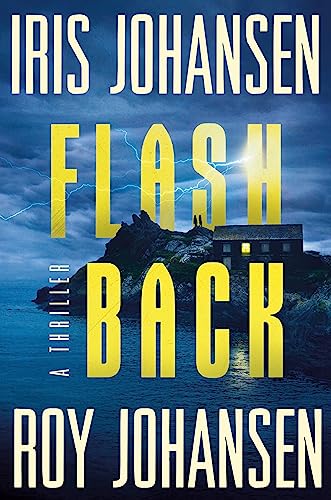
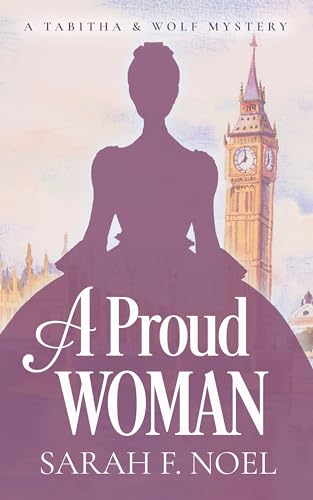
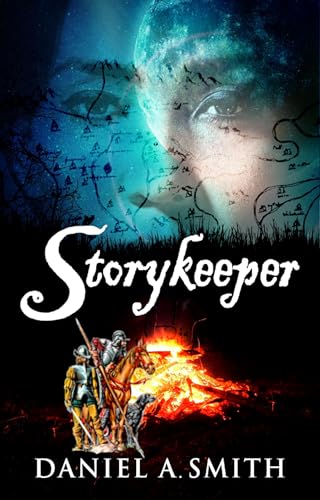
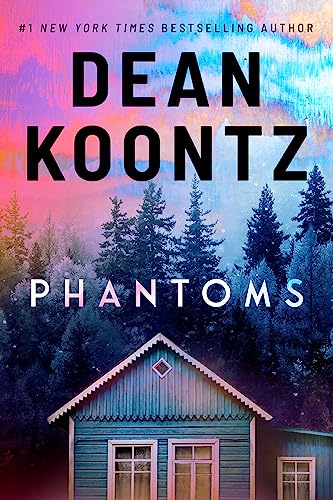
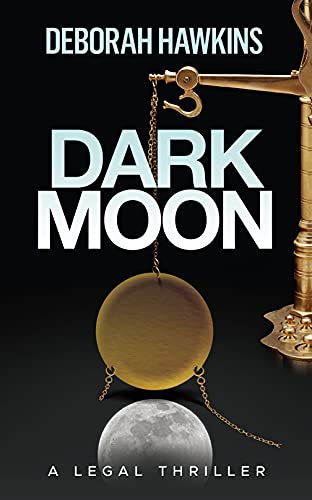
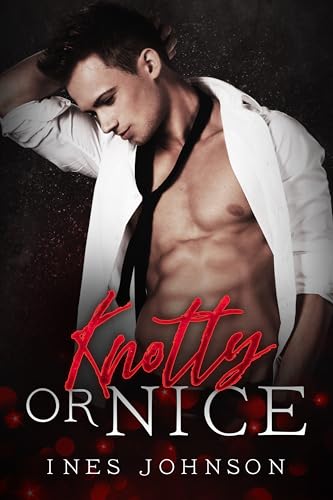
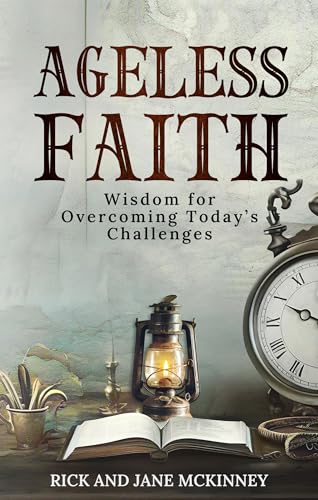
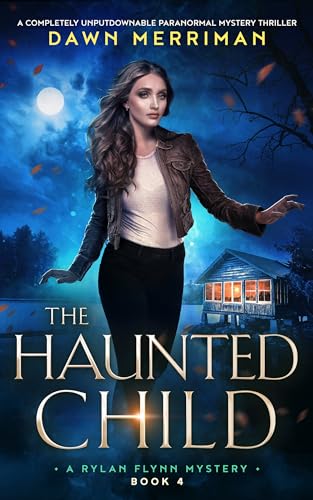

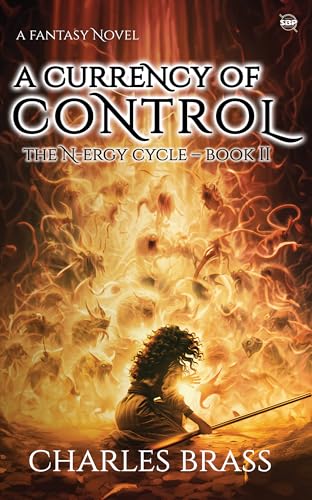











 To be eligible for the current drawing, complete the form below. This is your official entry and automatic sign-up for the Kindle Nation Daily email list.
To be eligible for the current drawing, complete the form below. This is your official entry and automatic sign-up for the Kindle Nation Daily email list.
